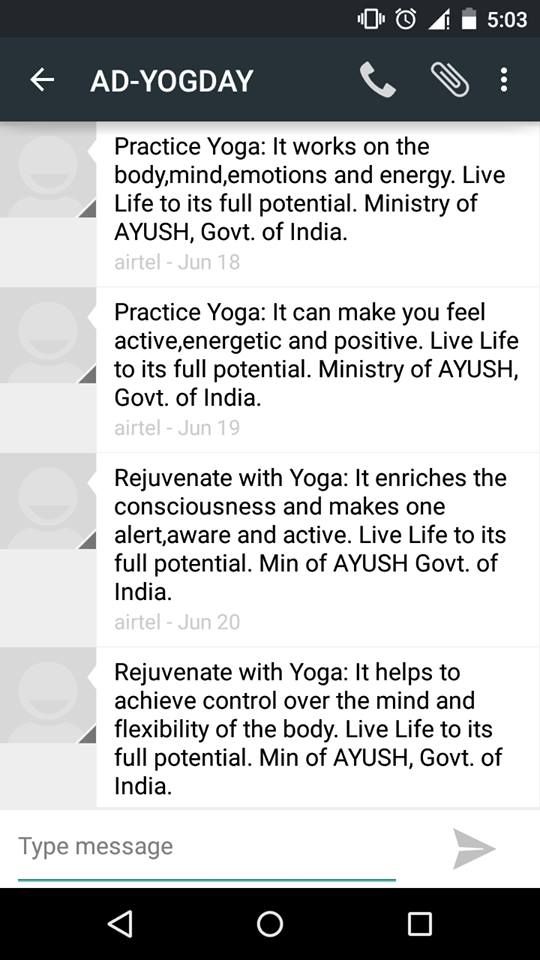Things Swachh Bharat Mission can learn from Yoga Day
— Blog Post — 1 min read
India, on Sunday morning, set two new Guinness World Records –for the most individuals performing Yoga at a single venue, and individuals from the largest number of nationalities performing it simultaneously. The prime minister took everyone by surprise when after delivering a short speech he came down from the stage and joined his fellow compatriots to practice yoga.
This is not the first successful campaign which Mr. Modi has led from the front; in fact, time and again he has proven his versatility of orchestrating large scale events. In this case the Ministry of AYUSH deployed available mediums of mass communication to sure widespread participation. It connected with people directly through SMSs, e-mail, on social media and in the form of TV and newspaper ads. All this bolstered the success of the event.
Yoga helps people to live a healthier life and the government did a fair job in promoting it. Ending open defecation would improve health in India a lot too, andwe feel that there is much that Swachh Bharat Mission can learn from International Yoga Day celebration.
Keeping messages short and simple:Instead of keeping the agenda vague by talking generally about the physical and mental health the International Yoga Day campaign kept things simple for people and promoted a way of attaining the goal. In the same way the SBM,instead of talking about the general term ‘cleanliness’ should focus more on making people use latrine.Because of open defecation, 2-3 lakh children die every year in the country.
Educating people on benefits of using a latrine: Our Prime Minister, who is admired by many as one of the best orators of his generation, similar to how he explained the world about the benefits of Yoga should more openly talk about ill-effects of open defecation.
Prime Minister leading from the fore front: Though Mr. Modi started the Swachh Bharat Campaign by himself picking up the broom in Delhi, he can visit a village, on Gandhi Jayanti, this year and use a simple inexpensive government latrine to sets an example for his fellow citizens in rural India to follow. There were some reports that many people who got new government toilets in his own adopted village were not using toilets. He could personally use the toilet in his own adopted village.
